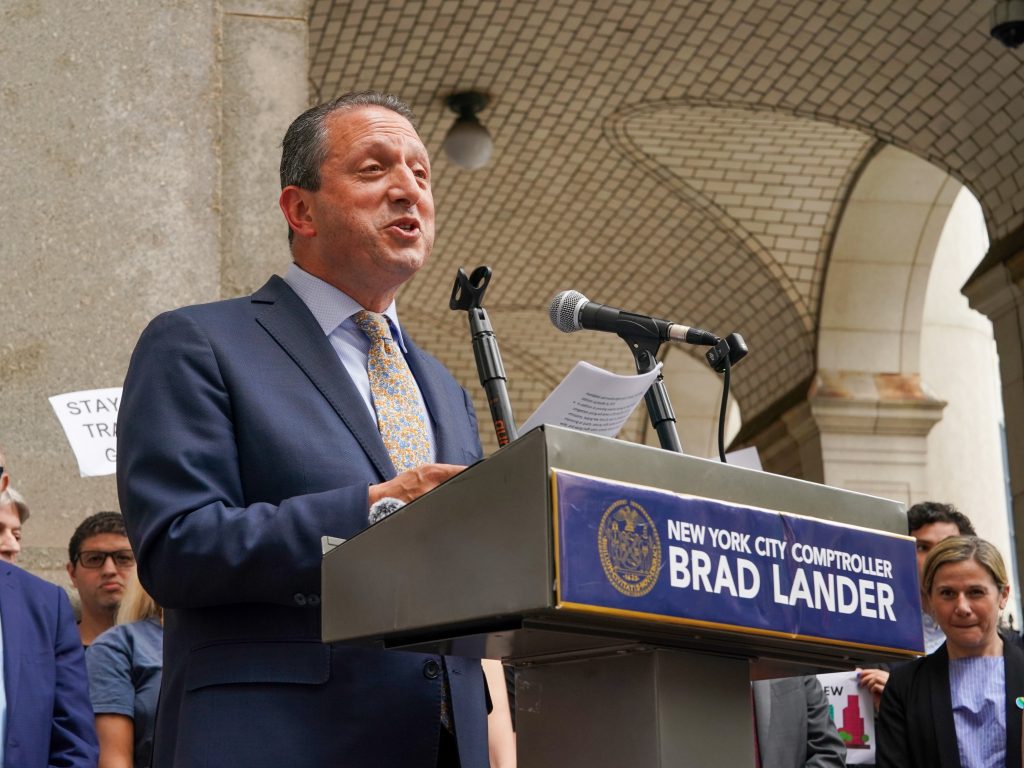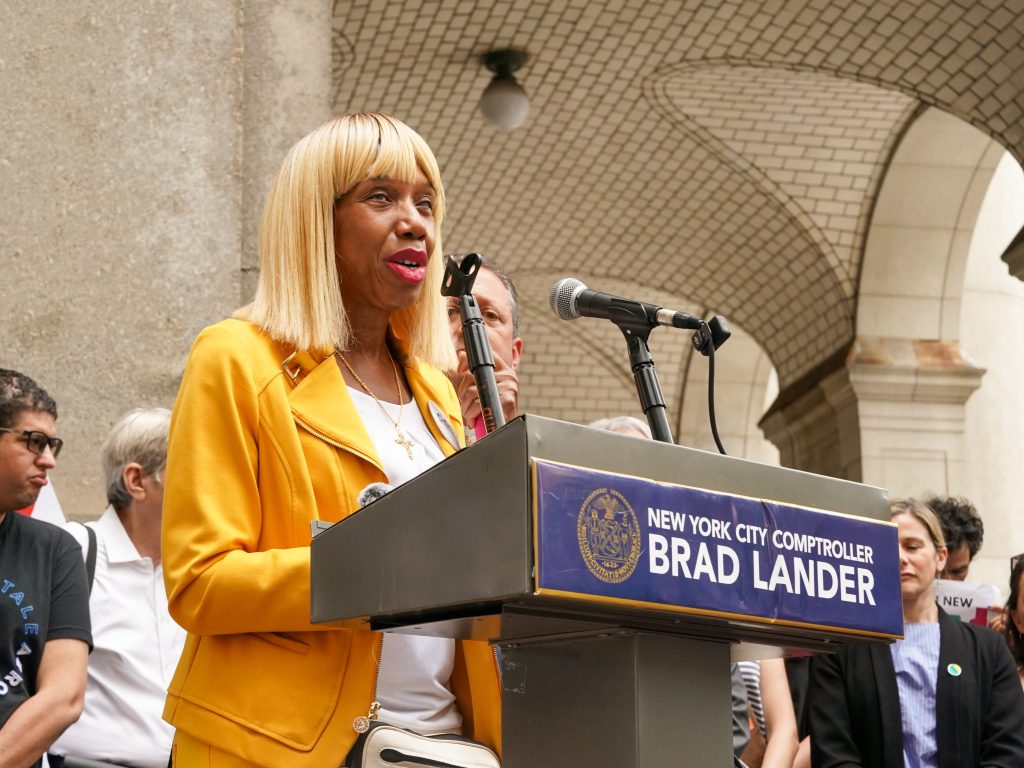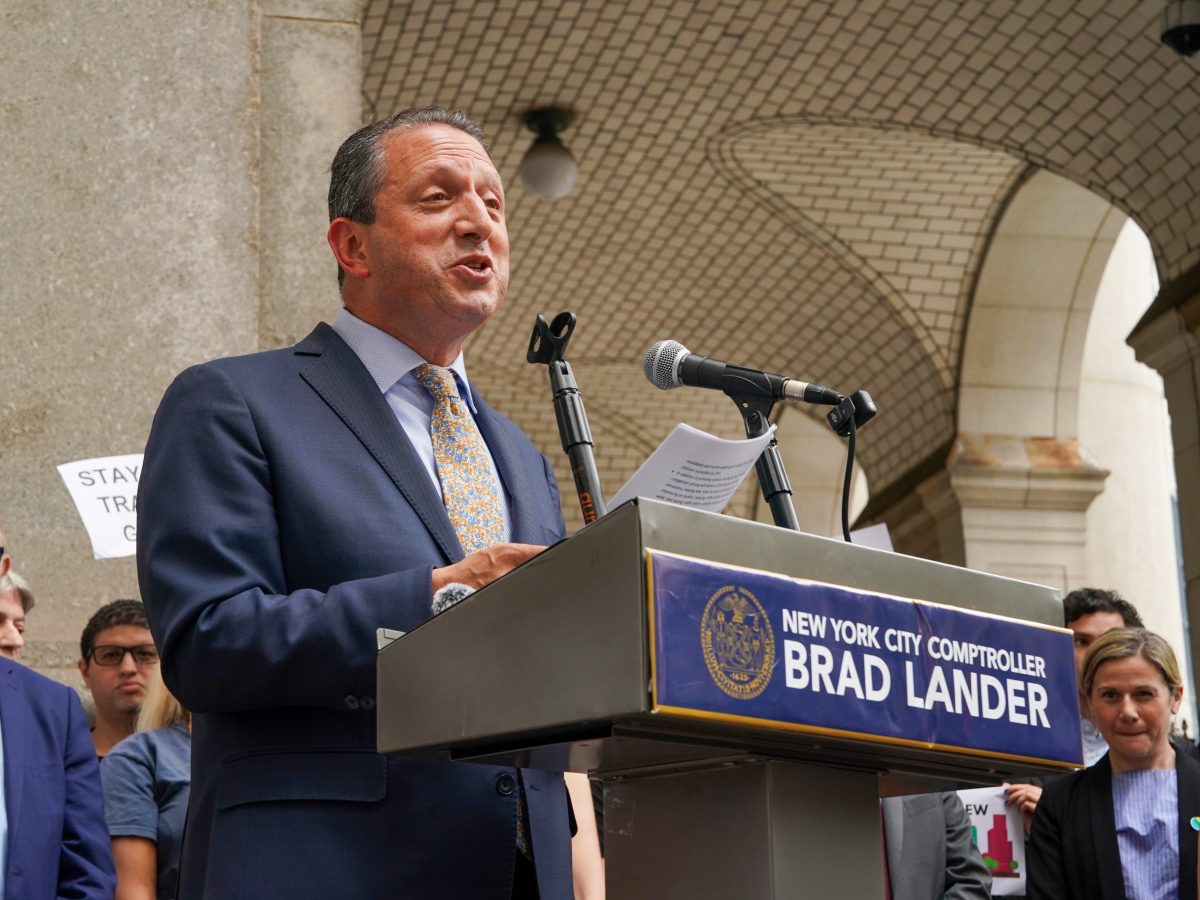Comptroller to Explore “Legal Avenues” That Will Force Congestion Pricing

Comptroller Brad Lander announced his office and legal experts will explore every legal avenue to force the implementation of congestion pricing. Credit: Jean Brannum
By Jean Brannum | jbrannum@queensledger.com
New York City Comptroller Brad Lander announced he will work with a team of legal experts and advocates to look into legal avenues to make Governor Kathy Hochul reverse her decision to halt the implementation of congestion pricing.
The comptroller alleges that Hochul violated the 2021 Green Agreement, the Central Business District Tolling Program, and the American Disabilities Act. Disability and transit advocates, who were also in attendance, said that the money from congestion pricing that would go towards transit improvements will be taken away due to the pause.
“This sudden and potentially illegal reversal wrongs a host of New Yorkers, who have a right to what was long promised to all of New York,” Lander said
The Green Agreement guarantees that all New Yorkers have the right to clean air and environment. Part of the proposed benefits on congestion pricing include better air quality in the Central Business District, which includes everything in Manhattan below 60th st. .
The comptroller also claims that the delay violates the Central Business District Tolling Program, which was passed in 2019 and allows anyone to challenge the state’s failure to implement congestion pricing. Columbia Law School Professor Michael Gerrard said that the governor does not have the authority to go against state laws and the indefinite pause indicates that the governor could kill congestion pricing altogether.
“The 2019 statute gives the MTA the mandatory duty to implement congestion pricing,” Gerrard said. “It is illegal for the governor to unilaterally cancel it.”

Sharon McLennon Wier, executive director of the Center of the Independence of the Disabled of New York, said that the delay on congestion pricing disrupts the MTA’s agreement to make almost all subway stations accessible. Credit: Jean Brannum
Disability advocates also expressed anger that the pause on expected MTA funds from congestion pricing will create a significant roadblock to making stations accessible. Sharon McLennon Wier, executive director of the Center for Independence of the Disabled of New York, said that the pause goes against a previous agreement in 2022 in which the MTA agreed to make at least 95 percent of stations accessible by 2055.
“We waited, and we continue to wait,” Weir said. “When is it going to be over? When is accessibility going to become universal access for everybody?”
A statement from MTA Chief Financial Officer Kevin Willens and MTA General Counsel Paige Graveson June 10 said that the pause will greatly harm potential improvements to transit due to the lack of funds. Projects such as accessible stations, electric buses, and signal improvements will likely be deprioritized.
In addition to the harm that could be caused to riders, Lander also said that the pause will impact people who bought MTA bonds backed by the expected revenues on congestion pricing.
The comptroller says he will wait until after the upcoming MTA board meeting June 24 and 26 to see how other agencies respond. In the meantime, Lander pushes Hochul to reverse her decision to delay and start congestion pricing on June 30 as planned. Lander also pushed Mayor Eric Adams to advocate for congestion pricing to be implemented.


